The complete guide to home viewing
Get Screen Gab for everything about the TV shows and streaming movies everyone’s talking about.
You may occasionally receive promotional content from the Los Angeles Times.
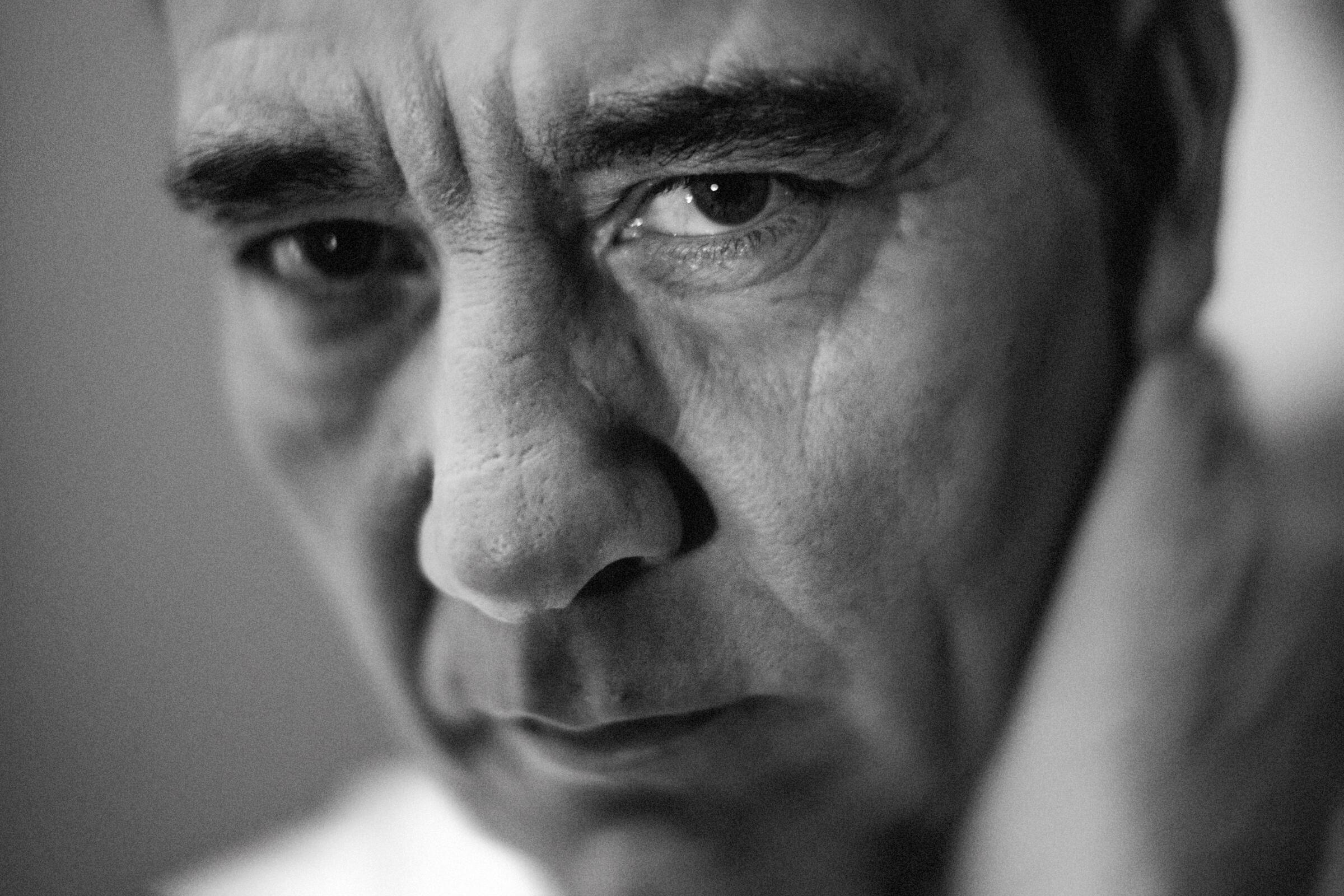
LONDON — Getting a phone call to play Sam Spade seems fated for Clive Owen. The protagonist of Dashiell Hammett’s 1930 novel “The Maltese Falcon” has appeared onscreen in many iterations, most famously in 1941 played by Humphrey Bogart. But Owen’s performance as the hard-line detective in the limited series “Monsieur Spade,” from creators Scott Frank and Tom Fontana, reimagines the character beyond Hammett’s own writing.
“It’s one of my favorite things I’ve ever done,” says Owen in an interview at the Charlotte Street Hotel in London. “I’m a crazy Bogart fan. I have an original poster from ‘The Maltese Falcon.’ When Scott called me, I sent him a picture of my poster and said, ‘You’ve come to the right guy.’”
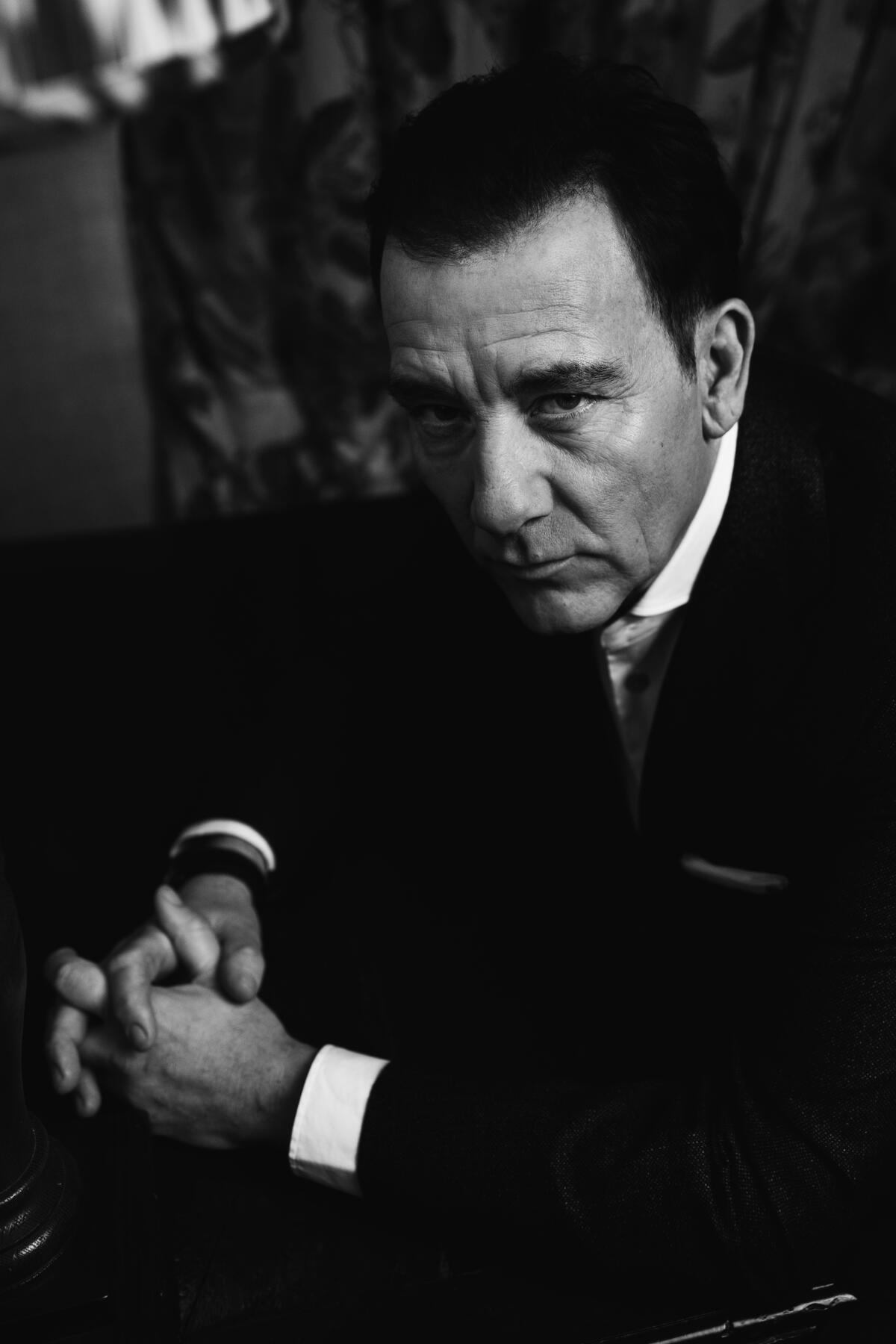
The AMC series, which premieres Sunday, originated after producers Carlo Martinelli and David Helpern got the rights to Sam Spade from the Hammett estate and approached Frank, creator of Netflix’s “The Queen’s Gambit” and “Godless,” to write an original show based on the detective. Initially, Frank wasn’t sure. But he soon realized there was something compelling about deconstructing an icon later in life.
“What happens if Sam Spade got older — the guy who smokes and drinks and has relationships with inappropriate women — what happens to that guy?” says Frank, who set the series 20 years after the events of “The Maltese Falcon,” with Spade semiretired in the south of France. “With this sort of male American hero, what is the reality? You live like this, you get emphysema.”
After partnering with “Oz” creator Fontana, who suggested timing the story to the end of the Algerian War in the early ’60s, the writers immediately settled on their Spade.
“Clive was pretty much the only person we could see playing him,” Frank says. “When you start writing, you always say, ‘Well, let’s make a list.’ As I recall, our list never went beyond Clive.”
When Dashiell met Raymond, or the day Hammett met Chandler
Although Owen seems like an obvious choice for a noir thriller, he hasn’t had the opportunity to fully explore the genre. Several years ago, the British actor was attached to star as Raymond Chandler’s famous, fictional detective Philip Marlowe, but he says the studio failed to get a good enough script. The project “kind of faded away,” as Owen puts it. With “Monsieur Spade,” Owen relished the chance to be part of something both nostalgic and new.
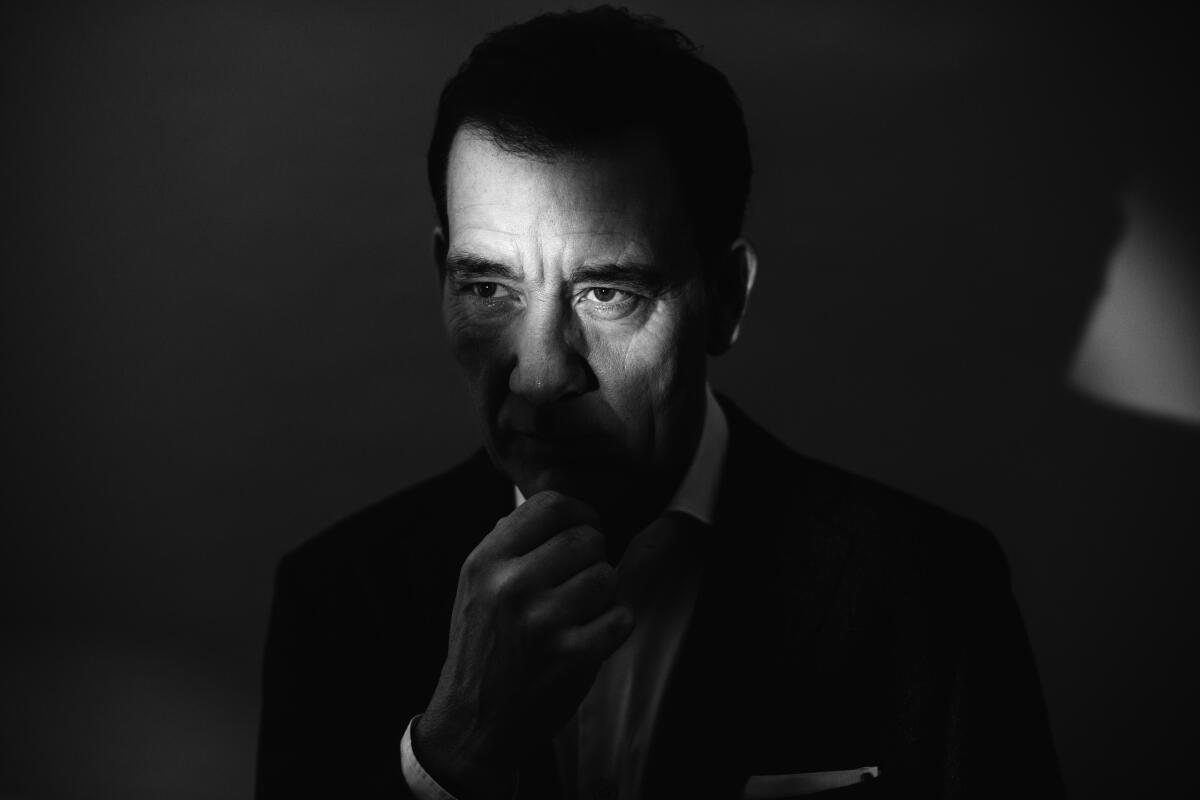
“Scott and I had a meal in New York after he started writing to talk about the first couple of scripts,” Owen says. And I said to him, ‘Don’t freak out. But I’m listening a lot to Bogart and I want to base my voice on him. I’m not going to do a bad impersonation of Bogart — it’s just the rhythm, the intonation.’ And he said, ‘That’s so weird because as I’ve been writing this, I have to hear Bogart say the dialogue.’”
Owen enlisted his assistant to record all of Bogart’s lines from “The Maltese Falcon” and “Casablanca” into voice memos on his phone. Each morning before and during filming, Owen would listen to the dialogue, studying the cadence and speed of the actor’s speech.
“He talks really fast,” Owen says of Bogart. “You think he’s quite laconic. You think he’s got an ease. But he’s super nimble, vocally. He rips through dialogue with this great ease. What I’ve realized I love about Bogart is that he doesn’t milk anything, he doesn’t overindulge. If he’s got good dialogue, he rips through it and lets the rhythm do the work.”
Owen was cast nearly a year ahead of production, which took place in 2022. He had recently starred in two very different series, Stephen King’s TV adaptation of “Lisey’s Story” for Apple TV+ and FX’s “Impeachment: American Crime Story,” in which he played Bill Clinton. He was intense about his preparation to play Spade — something he says he does with every project. He worked with a dialect coach on his American accent and also had to consider where the show was set, in Bozouls, France.
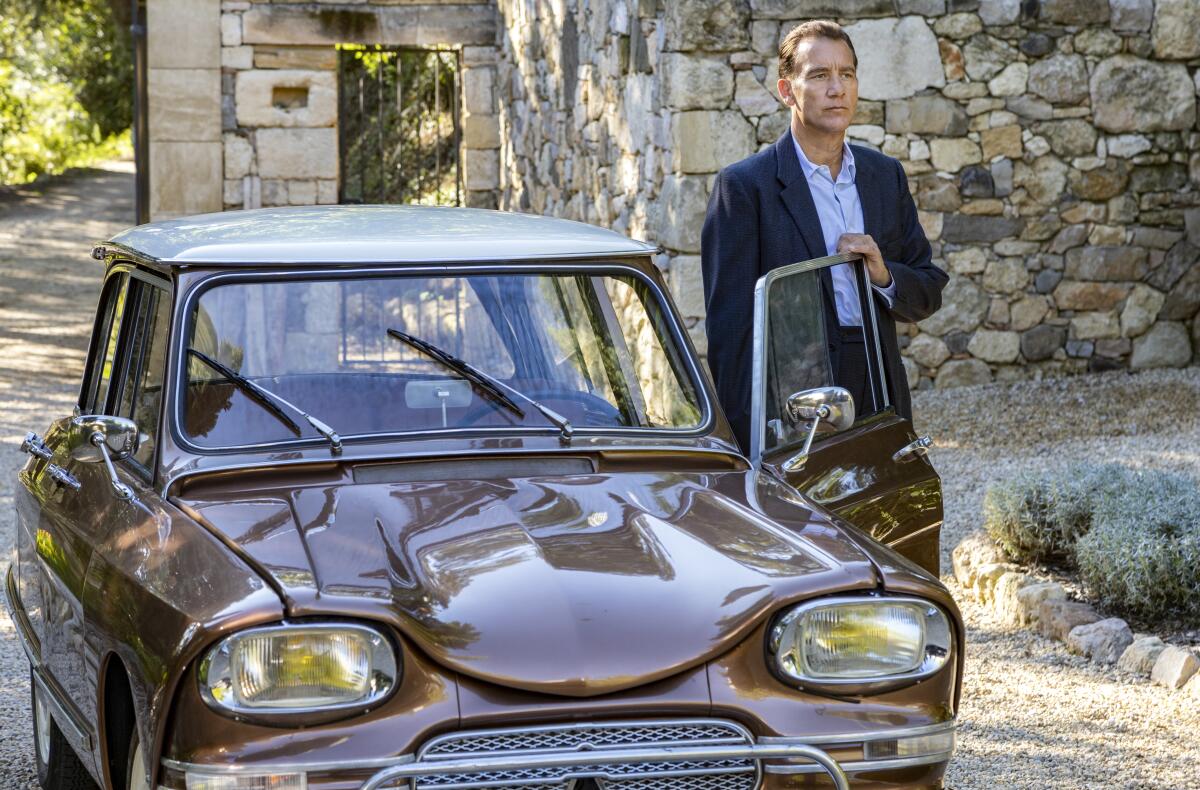
“I thought, ‘I have plenty of time. I’m going to learn French,’” Owen says. “I started with a classic French teacher and I spent so much time learning stuff that does not apply. I didn’t need to know the grammar. I’m not having an exam. I needed to be able to speak the lines, so I learned it phonetically. I learned French in the same way I learned the American accent.”
The six episodes, which follow a new Sam Spade mystery, were shot near Montpellier and in Bozouls, as well as in a studio outside Paris. Owen says he didn’t prep much physically beyond going to the gym “a bit” because he knew he would be doing nude swimming scenes. But he remained deeply immersed in dialogue prep even when shooting began.
“What’s remarkable about Clive’s performance is he suggests Bogart, but he never imitates, he never parodies,” Fontana says. “Not only is he doing an American accent but he’s also speaking in French. So he was juggling three balls all the time, in every scene.”
We gathered together the TV experts at The Times to preview our most anticipated new and returning TV shows of 2024. Here are 14 to keep an eye out for.
Frank recalls “routinely” going over the script on set because Owen was practicing the lines so frequently. The actor would query the dialogue or ask questions about the intent.
“It’s always helpful because it’s coming from him really thinking about the character, and he always understood the story,” Frank says. “You hope you get the actor that makes the material come alive [where] one plus one equals three, and that’s certainly Clive.”
For Owen, serious preparation means he’s more at ease once the camera is rolling. He wanted every line to “feel like the most natural thing in the world.” He focused on embracing the duality of the writing, which is both realistic and heightened due to the noir style.
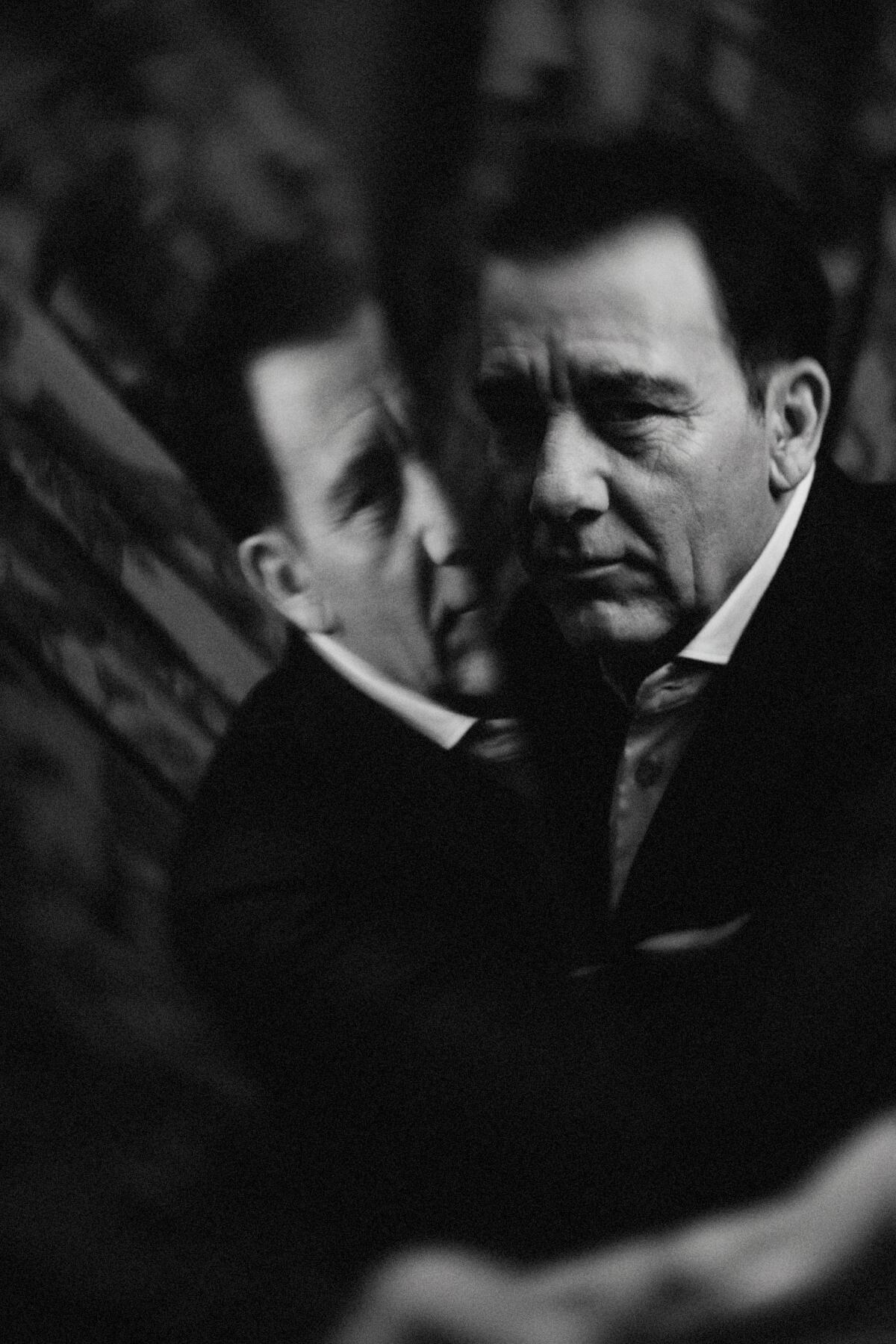
“It’s great having dialogue that is smarter than what you would say,” Owen says. “But you need to make it feel as easy as you can, and I loved that. It’s a joy for an actor when you get really good writing, where you feel you have to live up to it as opposed to try and make it work.”
That approach characterizes much of Owen’s career, which began on British television in the early ‘90s. He graduated from the Royal Academy of Dramatic Art and is a trained theater actor, saying it informs his belief that you have to be as equipped as possible. Filming, to Owen, is practical.
“Listen, there are no rules,” he says. “Some actors don’t do preparation, but they can blow another actor off the screen by what they do. But if you’ve done theater, you prepare. If you want [to work with] people like f— Steven Soderbergh or Scott Frank, you’ve got to come ready because they don’t do many takes.”
When making FX’s limited series “A Murder at the End of the World,” Owen had sessions with creators Brit Marling and Zal Batmanglij every Sunday to discuss the week ahead. Marling, who calls Owen’s preparation “ferocious,” recalls going over every scene “with a fine-tooth comb.”
“Sometimes these sessions would last for hours, but they felt like they went by in 20 minutes,” she says. “And that’s because his notes were always brilliant, and they never came from a place of ego. Sometimes he would literally take lines away from himself. Because he was always coming at it from a place of what was true to the story and what was honest for the expression of the character.”
Owen joined the series as tech billionaire Andy Ronson because he loved the way Marling and Batmanglij “broke all the rules” in their storytelling. The finale aired last month. “It felt relevant and doesn’t feel like all those murder mysteries we’ve seen before,” he says. “There’s just something so refreshing when people are bold in that way.”
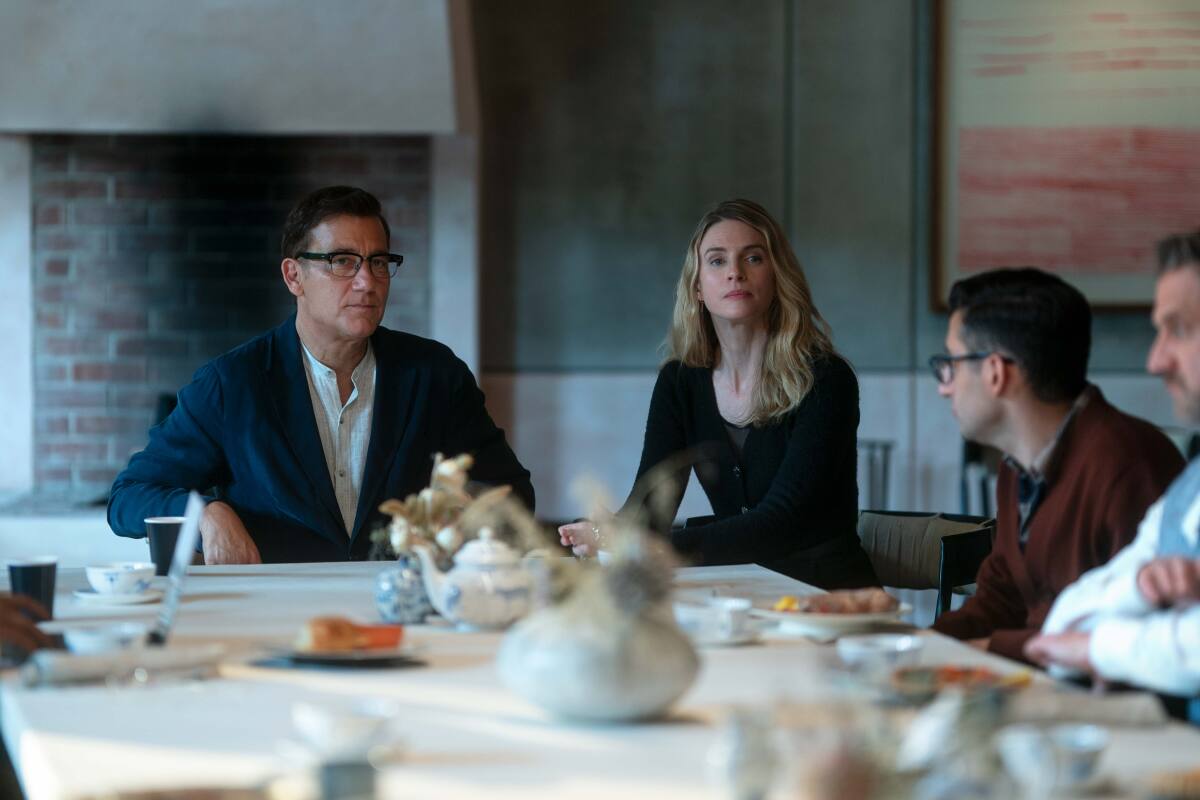
Owen’s character initially seems requisite, but the unexpected twists of the story allowed the actor to approach him without basing Andy on a particular real-life figure.
“I just had a look at those people and how they behave,” the actor says. “With all those guys there must come a point where you get paranoid about who you can trust. You’re that powerful. And no one else around you is as powerful. So trusting people would be quite hard, and that seemed to be the key for me. You’re probably looking over your shoulder all the time.”
Marling initially thought of Owen for the role because he has historically been called upon to play what she calls “the seer.” She looked at his performances in films like “Inside Man” and “Children of Men” when casting Andy.
“I think he’s often called to play that because he has those qualities as a person: fierce intelligence and deep curiosity and a relentless drive to uncover,” Marling says. “He is a detective of the character first and foremost, and he will not be satisfied until he uncovers the truth of what makes that person tick. And it’s never what you think it will be.”
Brit Marling and Zal Batmanglij, the creators of FX’s “A Murder at the End of the World,” wanted to create a detective who was more evolved than what we typically see in the whodunit genre.
Over the past decade, Owen has become an essential part of the television landscape, though he was known first and foremost as a movie star. His role as Dr. John W. Thackery on Steven Soderbergh’s “The Knick,” which ran for two seasons from 2014 to 2015, is one of the defining TV characters of the era. But for Owen, the series’ shocking finale was the definitive ending for Thackery, who seemingly died while operating on himself.
“They had some wild ideas [about going back to it], but I always knew how I was going to leave the show,” he says. “I was on for two seasons and that’s how I was going to go at the end, which I loved.”
Owen’s focus on TV since hasn’t been intentional; he says his career choices are defined by the quality of the work, not the medium. He admits that he gets sent “quite a bit” when it comes to scripts but tends to be picky. “I’m lucky that I do have options,” he says. “And sometimes I don’t read much — three pages sometimes.”
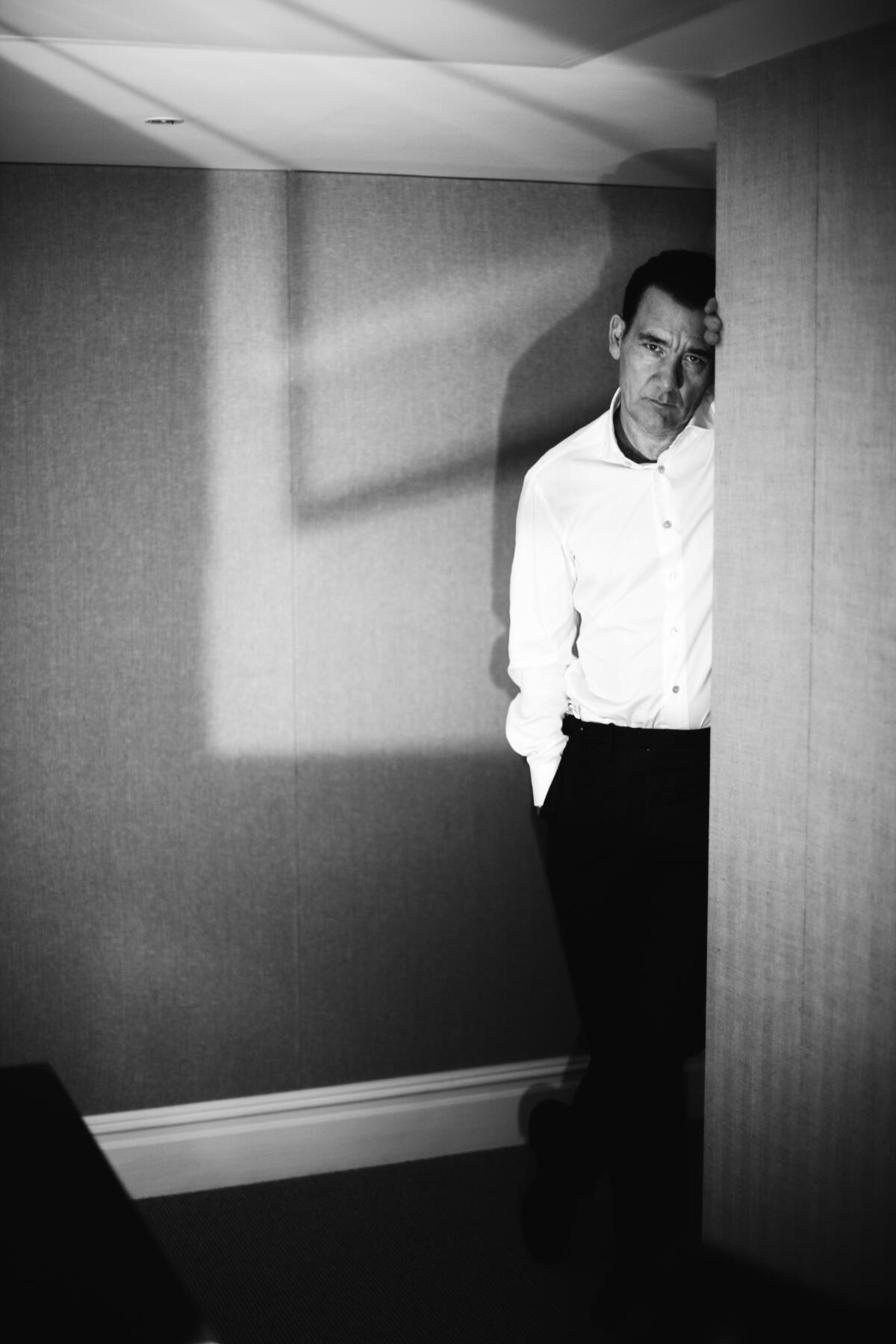
Next up, Owen will star in Martin Campbell’s action thriller “Cleaner,” which shot last fall and also stars Daisy Ridley. He doesn’t have a next project, although he doesn’t mind the uncertainty. “One of the joys is you’ll never know where the next thing will take you,” he says. But that hasn’t stopped him from imagining more stories for Sam Spade.
“Scott and I both loved it so much,” Owen says. “I think we want to wait and see how this goes, but we’ve already talked about ideas.”
Frank agrees that there could be more seasons, potentially in different locations around the world. “There’s certainly a lot of different things you could do with this character,” Frank says. “It would be a fun sandbox to revisit.”
“Clive is learning Mandarin right now,” Fontana adds, joking. Or maybe he’s not.
The complete guide to home viewing
Get Screen Gab for everything about the TV shows and streaming movies everyone’s talking about.
You may occasionally receive promotional content from the Los Angeles Times.